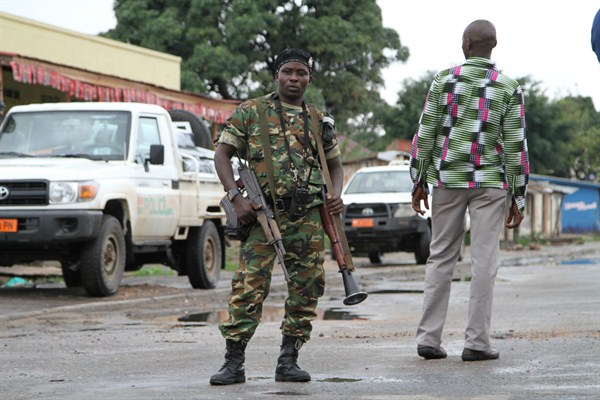Last month, on Dec. 17, the African Union’s Peace and Security Council adopted a communiqué that threatened to launch a military intervention in Burundi after violence escalated considerably in the country. If it is deployed, the mission would represent a historical echo of the AU’s very first peacekeeping operation, launched in 2003 to implement a fragile cease-fire agreement in Burundi, where a long civil war was then drawing to a close. The nearly 3,000 soldiers from South Africa, Mozambique and Ethiopia that made up the AU’s mission to Burundi stayed in the country for a year, handing off to a United Nations force that saw things through to the end of Burundi’s war in 2005.
While the first AU mission in Burundi in 2003 was considered a success, and the proposition of a second one has been welcomed by some international observers, it also faces several challenges that need to be addressed before the mission is deployed. If they are ignored, an AU intervention risks stoking even more unrest in Burundi.
The AU’s declaration came in response to attacks on three military bases in Burundi on Dec. 11 and a subsequent heavy-handed response from police and the army. Far worse than the attacks themselves, which killed 8 soldiers and policemen, was the disproportionate response from Burundi’s security forces, which, according to Amnesty International, included extrajudicial executions and systematic killings. The Burundian army put the death toll at close to 90 people.

